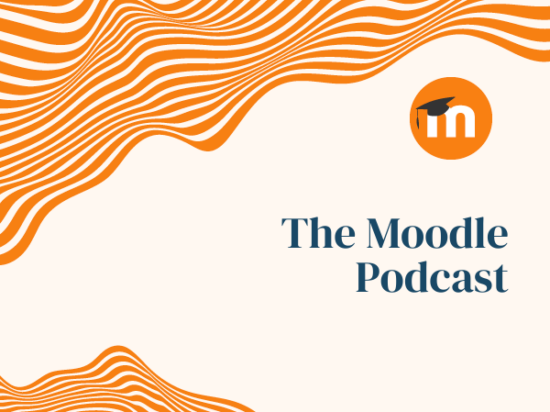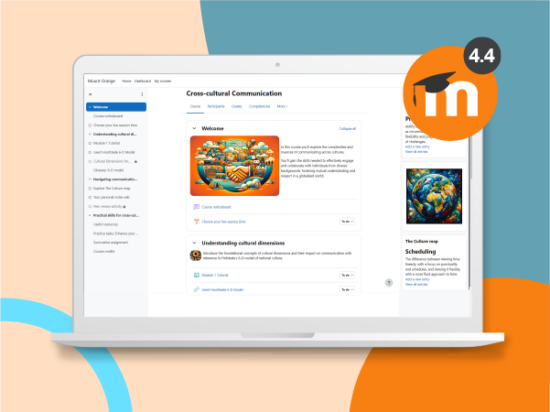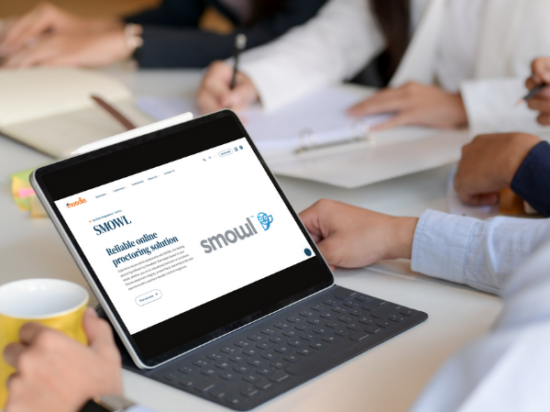Around 70% of global internet traffic is via mobile devices and this figure is expected to rise quickly in the next few years.
As learners move away from desktop to mobile, edtech innovators have to meet the growing need for classrooms to be easily accessible on every device.Recently, Moodle – the world’s open source learning platform – officially introduced its latest step towards excellent mobile learning experiences – the Branded Moodle Mobile App.
Simply put, the Branded Moodle Mobile App is all of the latest functionalities and stability of the generic Moodle Mobile App combined with an organisation or institution’s own custom branding.
Since its official release, Moodle HQ has received a large number of queries about the Branded Moodle Mobile App.
To provide an idea of what the Branded Moodle Mobile App is, the process of getting one and the benefits of having it for your organisation and institution, Moodle HQ had a quick chat with Dr Mark Glynn from Dublin City University (DCU) – the first institution to take up the product to enhance their mobile learning.
Moodle HQ: Please introduce yourself – name and position at DCU and what your primary role/s are at the University?
Mark: My name is Dr Mark Glynn and I am the Head of the Teaching Enhancement Unit at Dublin City University.
The Teaching Enhancement Unit is our centre for teaching and learning and our mission is to foster excellence in practice through leadership in teaching, the provision of professional development opportunities for staff, and the scholarship of teaching and learning.
A good part of our work involves providing and supporting strategically important teaching enhancement services, one of which is Moodle.
DCU is actually one of the first institutions to use Moodle as its learning management system, since late 2003 / early 2004. We pride ourselves in making our university an innovative learning environment and Moodle’s open source system was attractive from the onset of its release because of the open and flexible education tools it continues to provide.
Moodle HQ: How did you hear about the Branded Moodle Mobile App, and why did DCU decide to acquire it?
Mark: Over 30% traffic to DCU’s learning management system comes from mobile devices, so I have been following the development of the Moodle Mobile App closely since work on it began.
We wanted to enable our educators and students to easily access their teaching and learning, respectively, through mobile.
The challenge that we had though was that we don’t call our Moodle learning management system, Moodle. Instead we have an internal name within the University for all of our learning technologies – Loop.
Our reasoning for this is very simple. We feel that it is not a particular technology or a particular brand that should drive learning, it should be how the technology is used for learning. This is consistent with our philosophy of leading with pedagogy not technology.
So, as you can imagine the decision to have an umbrella “brand” name for our learning technologies has a knock-on effect. In this instance we did not want to encourage our staff and students to download the generic Moodle Mobile App. We wanted a DCU Loop specific app so when the Branded Moodle Mobile App was released, we jumped on the chance to have our own branding with all the functionalities of the Moodle Mobile App.
Moodle HQ: What did you think about the process of getting a Branded Moodle Mobile App for DCU?
Mark: The process of getting a Branded Moodle Mobile App is very straight forward.We were supplied with a list of requirements – text we want displayed on the app store, images and logos for the app itself – then we just sent them all back in. Following a few more conversations, we had our own Loop branded app to test and then it was published to the App Store and Google play for downloading.
So overall, the process was very smooth and hassle free.
Moodle HQ: What has been the response from learners and educators to date about DCU’s Loop?
Mark: Well, since it’s been published to the App Store and Google Play, DCU has only done a soft launch of the Loop App. We have not done a big marketing push as yet. This is planned for the summer school months coming up in the new year.
However, to date, by referring to the short urls in our advertisement of the app, we have over 3,000 hits for the app for each store. With only 16,000 students in our University and the fact that we only had a soft launch of the app we are very happy with its adoption so far.
The biggest feedback from our staff is that using the choice activity functionality in Moodle Mobile App through our DCU Loop, they now have an easy and efficient way to facilitate in-class polling.
Moodle HQ: What else would you like to see in DCU’s Loop to make learning more innovative, collaborative and engaging?
Mark: The reports we will get from the Moodle Mobile team to see the usage of DCU’s Loop will be very beneficial and I look forward to getting first hand access to those to inform future decisions about our learning technologies.
Secondly, we will look for and hopefully work with Moodle for ways to integrate our DCU’s Loop App with the existing DCU App which is used for communications about everyday life and activities at our University.
Lastly, we are excited about conducting an official launch of the first Branded Moodle Mobile App – DCU’s Loop – for all our students and staff next year to facilitate the growing trend in mobile learning.
To get your own Branded Moodle Mobile App, or for more information, watch the video below, or go to: moodle.com/mobileapp/



